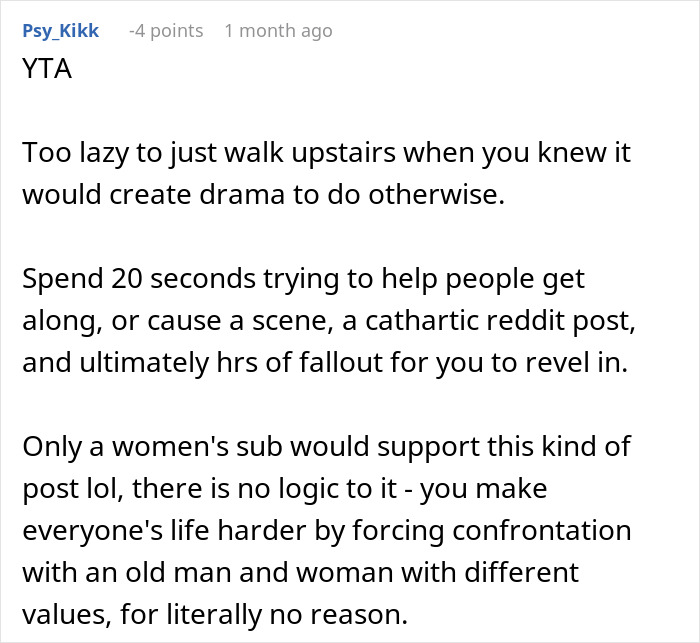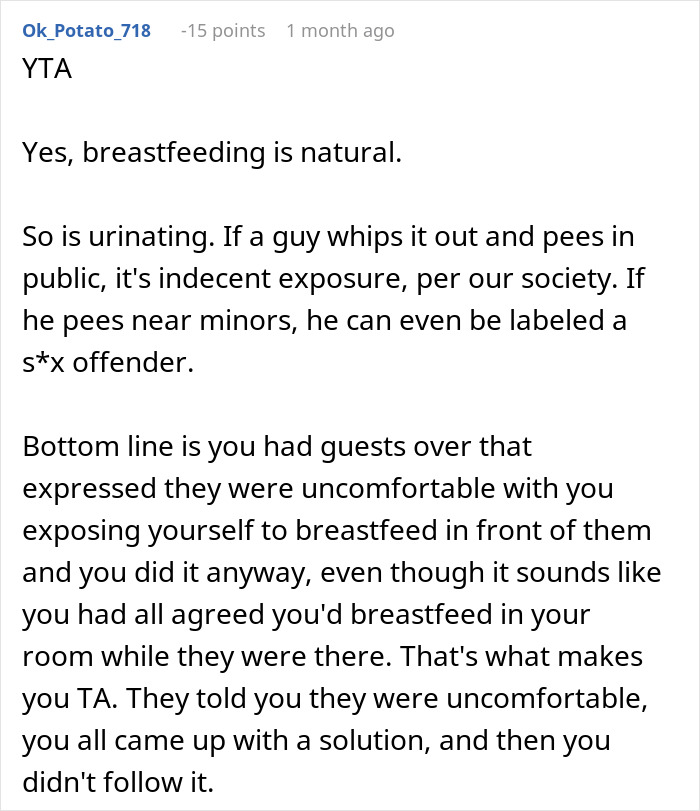UNICEF reports that rates of breastfeeding are increasing around the world as women gain more protection and support. This is great news since breast milk is a safe, natural, nutritious, and sustainable food for babies that helps them grow healthy and strong. However, the act of nursing, especially in public, is still frowned upon by some people who see the exposure of women’s skin as inappropriate.
Unfortunately, the in-laws of this new mom fall into this category and often make her feel uncomfortable about breastfeeding. But recently they overstepped all boundaries by forcing her to nurse in private in her own home.
Breastfeeding, especially in public, is still frowned upon by some people

Image credits: Image by Freepik (not the actual photo)
What this new mom didn’t expect is that she would get the same treatment in her own home
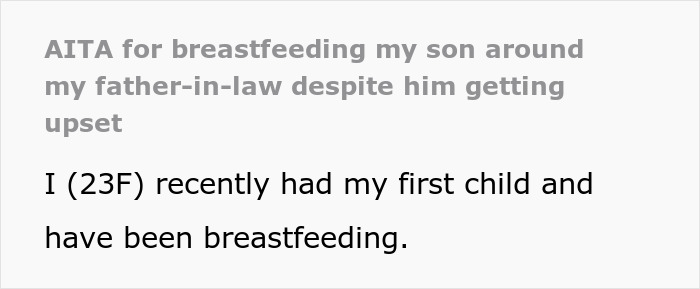
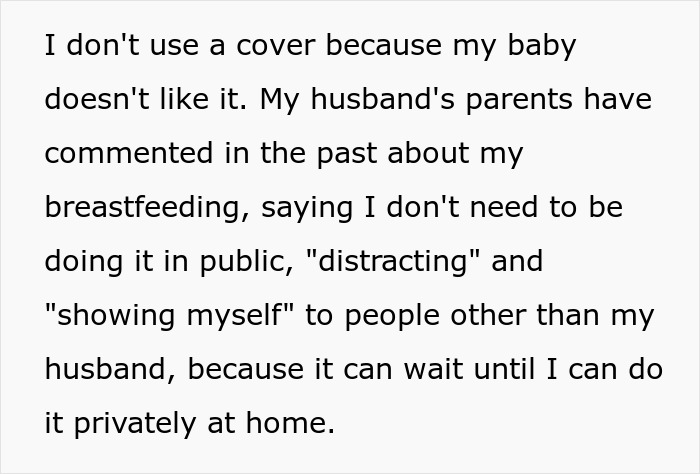
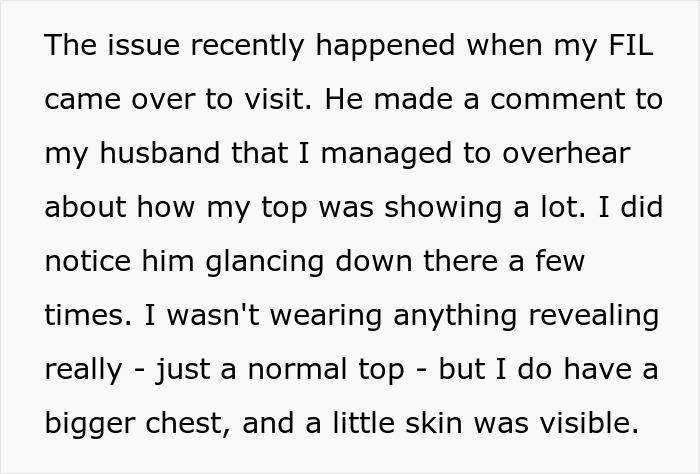
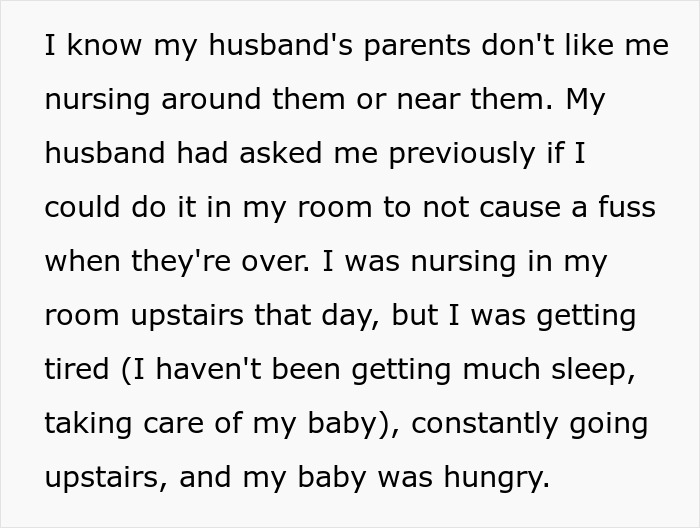
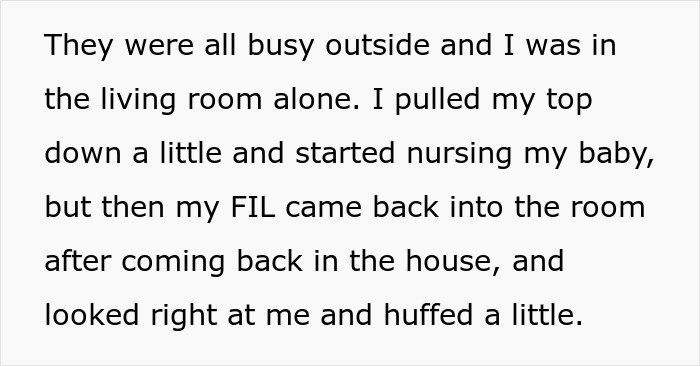
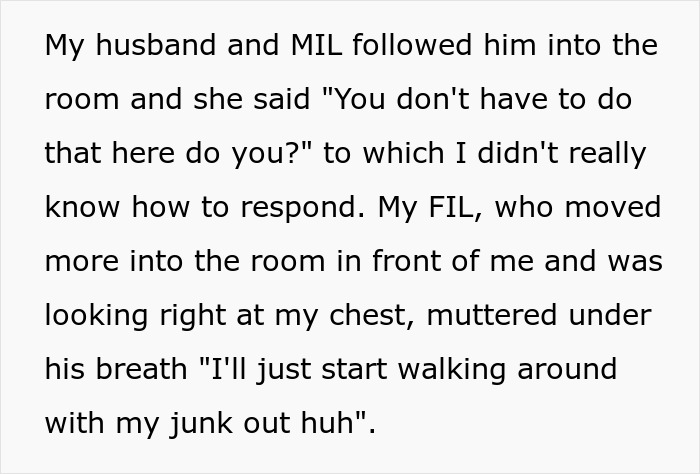

Image credits: Image by Freepik (not the actual photo)
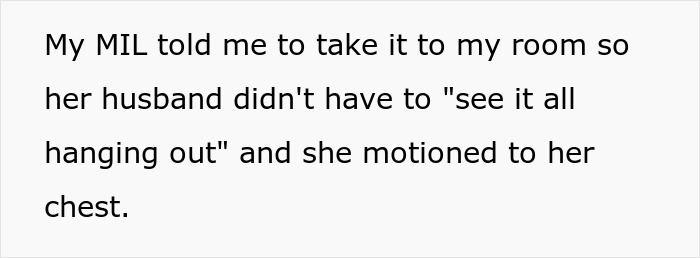
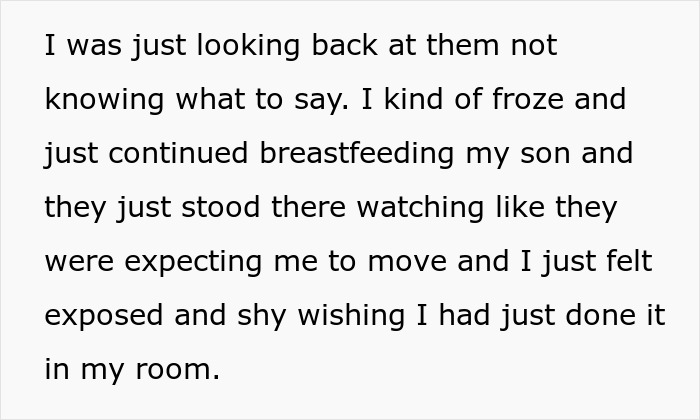
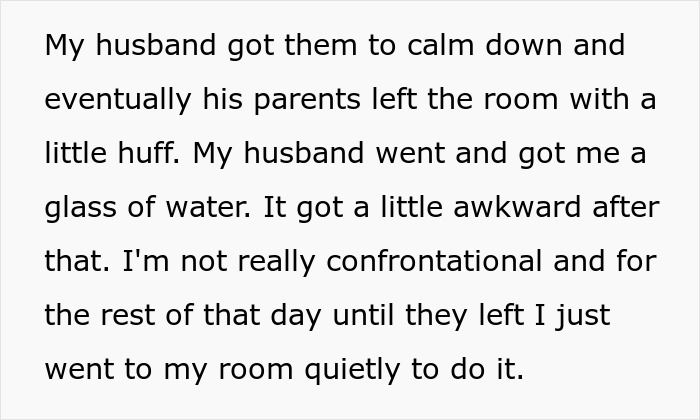
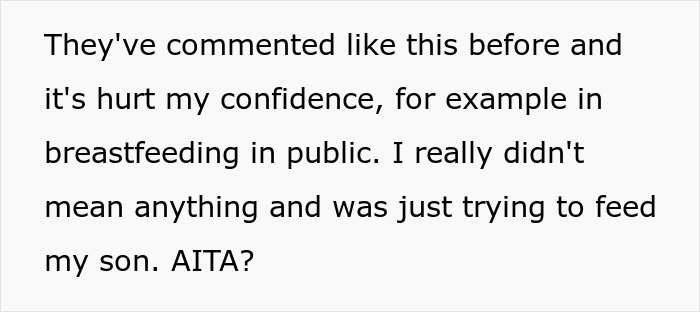
Image credits: CompleteEnthusiasm28
Women experience many difficult challenges while breastfeeding

Image credits: senivpetro / Freepik (not the actual photo)
Many women find breastfeeding an enjoyable and bonding experience. However, they also experience challenges that can make it difficult, like the baby not latching properly, having sore or cracked nipples, low milk supply, too much milk, painful breasts, infections, and blocked milk ducts. Combined with hormonal fluctuations, all of these difficulties can exhaust the nursing parents, making them experience negative emotions, such as frustration, shame, resentment, and so on.
“Most women I hear from don’t anticipate problems with breastfeeding or their milk supply,” said Karen Anderson, a social worker at Sharp Mary Birch Hospital for Women & Newborns. “So, when they do, they end up having feelings of shame and think they’re failing at something that is perceived as easy and instinctual.”
Some women go through even more complex breastfeeding challenges, like breastfeeding aversion. Those who experience it can feel negative emotions and physical responses during nursing. This can span from irritability and frustration to rage, disgust, intrusive thoughts, unpleasant skin sensations, and an urgent need to remove the baby from their chest.
So imagine that on top of all of this, they have to deal with people who tell them that breastfeeding in front of others is inappropriate or distracting. These negative reactions from those around them can fuel the shame and other negative emotions they might already be feeling and make them even less confident in their ability to breastfeed. However, it shouldn’t be like that—nursing is something that all women should feel comfortable and proud of doing, as they’re simply providing their children with the nutrients they need to survive.
“We urgently need the public to reframe their view of breastfeeding, so that it is understood as nutrition for babies”

Image credits: Image by Freepik (not the actual photo)
“We urgently need the public to reframe their view of breastfeeding, so that it is understood as nutrition for babies, rather than a political or sexualised act by their parents,” agreed Dr. Aimee Grant of Swansea University’s Center for Lactation. “This means that the public should not stare, tut or make negative comments about breastfeeding babies.”
The question that follows this is how can we achieve this? International board-certified lactation consultant Leigh Anne O’Connor, in a previous interview with Bored Panda, suggested normalizing breastfeeding by giving up special places for parents to secretly feed their babies.
“Educate all healthcare workers about breastfeeding. Have breastfed curriculum in high schools. Require ALL healthcare workers to be educated about breastfeeding. Stop using bottles as the image for feeding babies. Stop the marketing of formula, especially in low-income areas. Hospitals should not be giving away formula,” she urged.
However, if someone shares their opinions on breastfeeding, the woman has every right to share theirs, says Emily Guarnotta, PsyD, a clinical psychologist. By responding with something like this, “I understand my breastfeeding is uncomfortable for you, however, I’m taking care of my child and you’re welcome to look away.”
“It is always helpful to have a supportive person with you. Or to be with other breastfeeding parents—there is strength in numbers,” adds O’Connor.
Most readers sided with the new mom









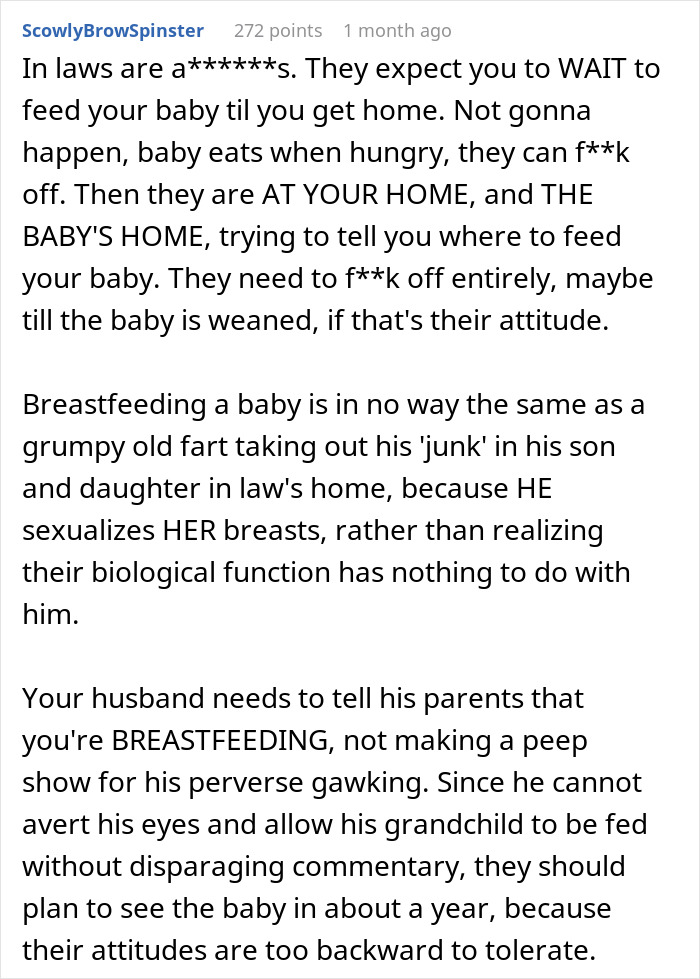

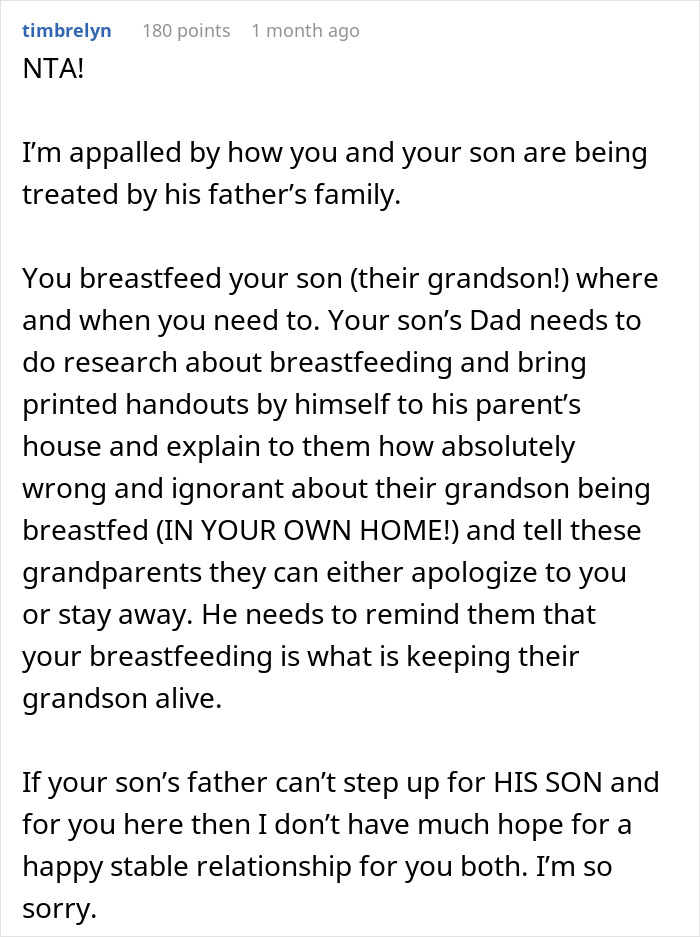
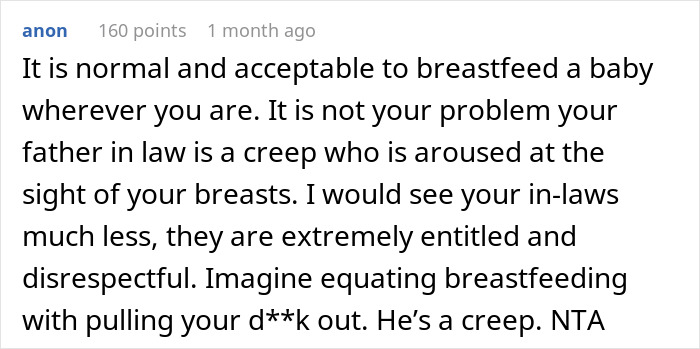
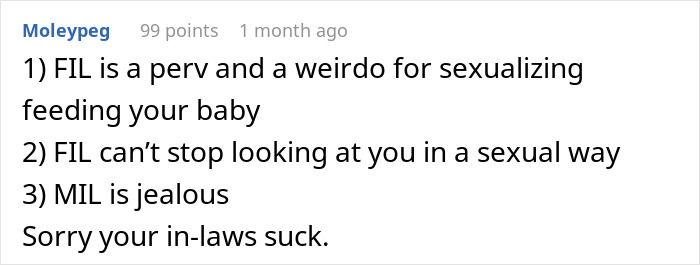



While some thought she was in the wrong
